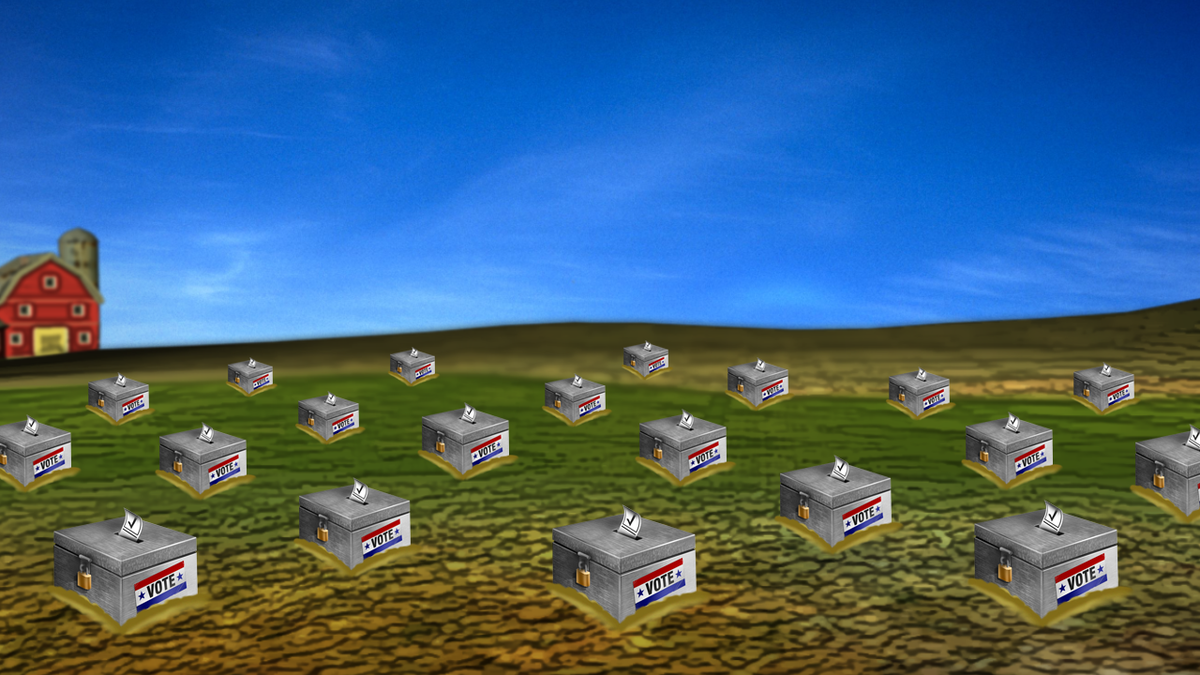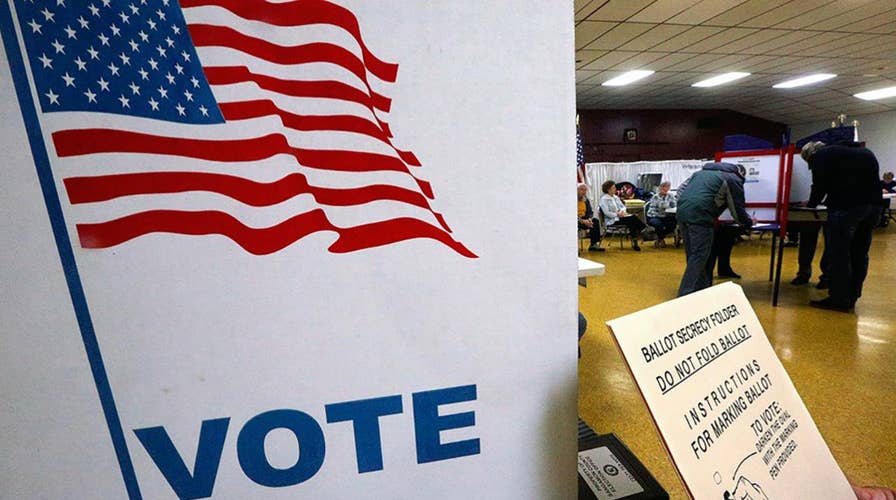Democrats appealing Arizona voter fraud law
Republicans think law protects voter fraud, while Democrats believe it causes voter suppression
PHOENIX – Democrats are continuing their legal battle against Arizona’s “ballot harvesting” law, claiming it was passed to dilute minority voting power.
This comes even as a federal judge recently ruled the law was constitutional.
The law, which makes it illegal for absentee voters to allow others to collect their completed absentee ballots and submit them to election officials on the voters' behalf, with the exception of family members and caregivers, was enacted in 2016. Under the law, if a person gets caught taking other people’s completed ballots to the polls for them, he or she could face felony charges.

"Ballot harvesting," otherwise known as an absentee ballot collection, is when people collect other voters’ completed ballots and take them to the polls on their behalf. (Fox News)
The Arizona Democratic Party and Democratic National Committee sued the state and Maricopa County over the law. But it was upheld May 8 after U.S. District Judge Douglas Rayes ruled the groups failed to show that the Arizona legislature passed the law with the intent of suppressing minority voters.
Democrats have vowed to continue their legal fight.
“I respect the court’s decision but I don’t agree with it and that’s why,” said State Rep. Richard Andrade, D-Glendale about why the ruling was still being challenged. “It’s something that really impacts certain people.”
Andrade said the law disenfranchises those who live in remote areas, working-class families, minorities and those with disabilities because they have a tough time getting to a post office.
“You have your family to take care of and make sure you put food on the table and everything, they’re not going to miss a day out of work—or they might not be able to get away from their job to even stop by the county elections to drop off that ballot because they just don’t have that luxury,” Andrade said. “We are taking that luxury away from people and punishing them by saying, ‘Hey, your vote doesn’t matter.’”
Republicans argue the law is necessary to prevent voter fraud. State Rep. Michelle Ugenti-Rita, R-Scottsdale, who sponsored the bill, said she was pleased the court upheld the law.
“Think about it. It’s election season and you’ve taken upon yourself to perhaps knock on someone’s door or multiple doors and collect their ballot with, I’m assuming, the intent to turn the ballot into the ballot box,” Ugenti-Rita said. “But, in the event that doesn’t happen, regardless of why it doesn’t happen, you can see it that that has (an) impact on…that person’s ballot to the election box. But, then also on the outcome. So, it’s not a practice that really has enough benefit to justify continuing to have it. So, that’s why I sponsored the bill and the court agreed that it was within our statutory and constitutional authority.”
Voter fraud has become a national issue that has pitted Republicans against Democrats. Republicans, in an attempt to prevent voter fraud, have pushed for stringent ID and ballot harvesting laws as Democrats have argued those efforts are a veiled attempt to strip away minority voting power.
Ugenti-Rita said the intent behind Arizona’s law isn’t partisan. Ballot fraud, she said, isn’t a partisan issue.
“Elections are critical and the outcome of an election is important and people have to have confidence in the outcome of an election,” Ugenti-Rita said. “The best way to kind of effect your government is at the election box. So, election integrity is something that we have to safeguard. It doesn’t make sense to allow a practice to exist that has the potential to increase fraud and undermine the outcome of election or that confidence in the election process.”
However, there are studies that show voter fraud is not a widespread issue and has not impacted the outcome of elections.
“There was not a case of voter fraud proven (in Arizona), but yet this proceeded through,” Andrade said.
The issue is critical in Arizona because the state relies heavily on mail-in voting. According to the Citizens Clean Elections Commission, about 80 percent of Arizona voters choose to receive their ballot in the mail.
“There was not a case of voter fraud proven (in Arizona), but yet this proceeded through."
The ballot harvesting issue in Arizona came before the U.S. Supreme Court in 2016 and the court suspended a ruling that would have temporarily blocked the law while it was making its way through the courts.
The case is now before the Ninth Circuit Court of Appeals. There’s a possibility the appeal could end up in the U.S. Supreme Court again.











































